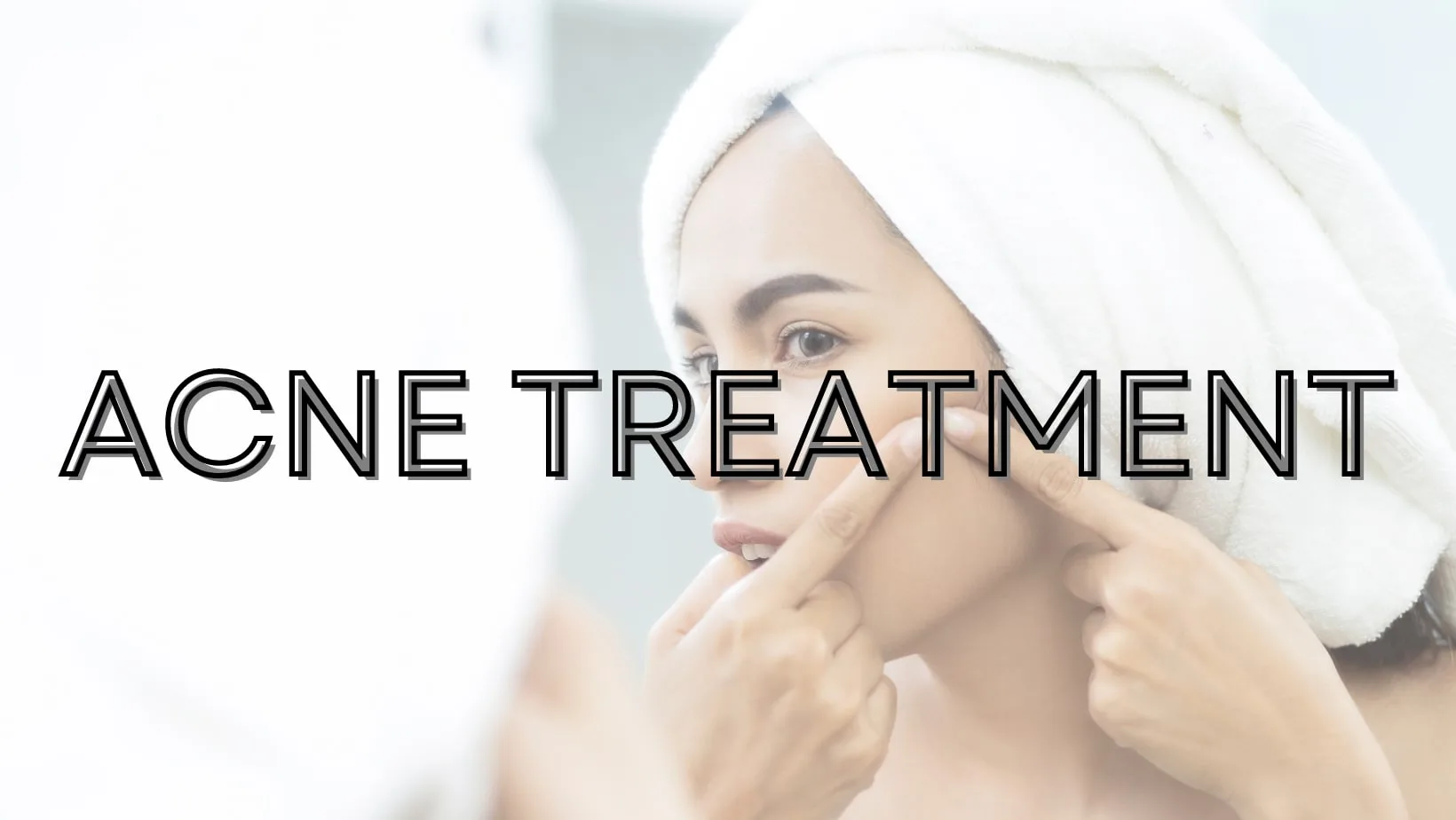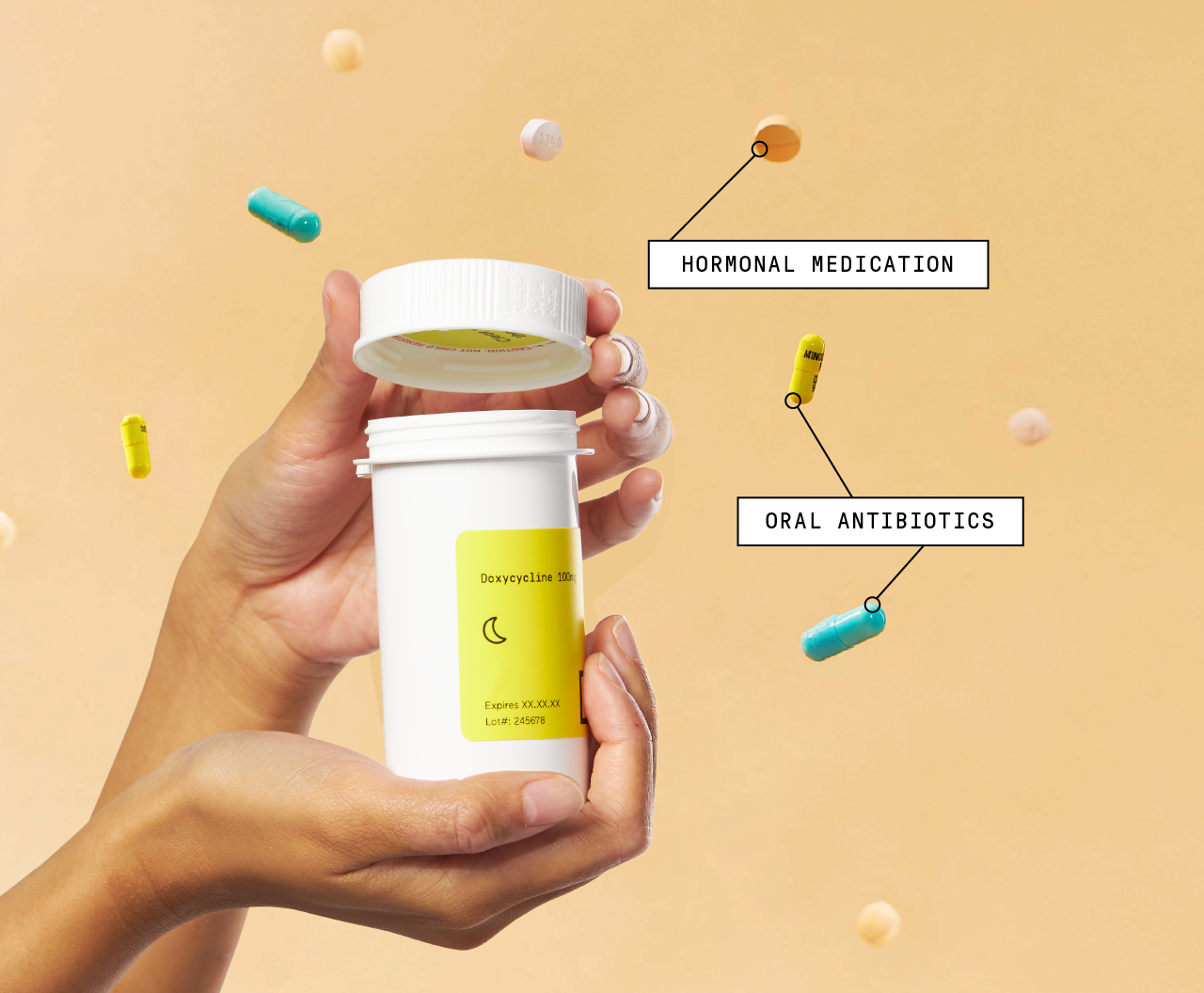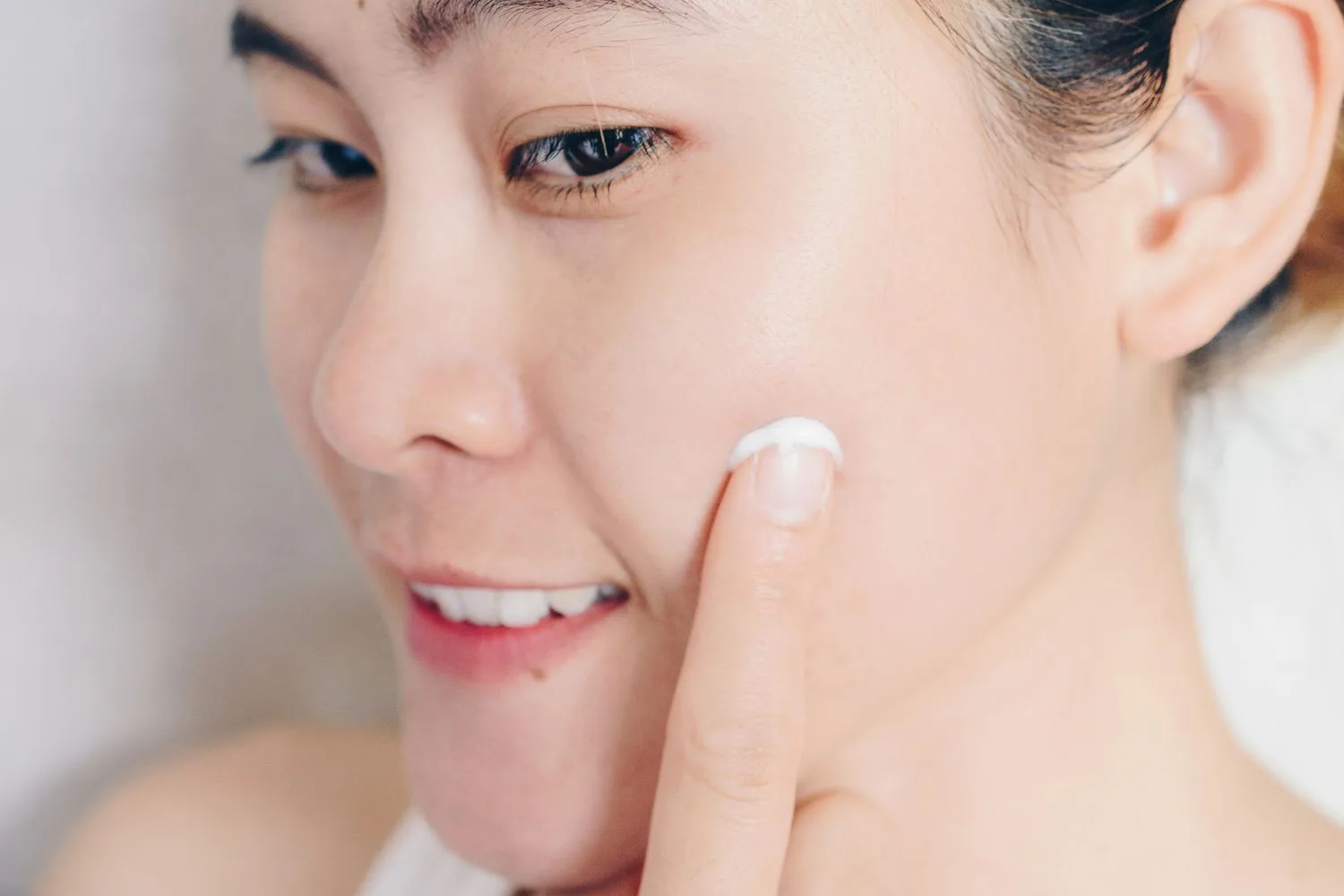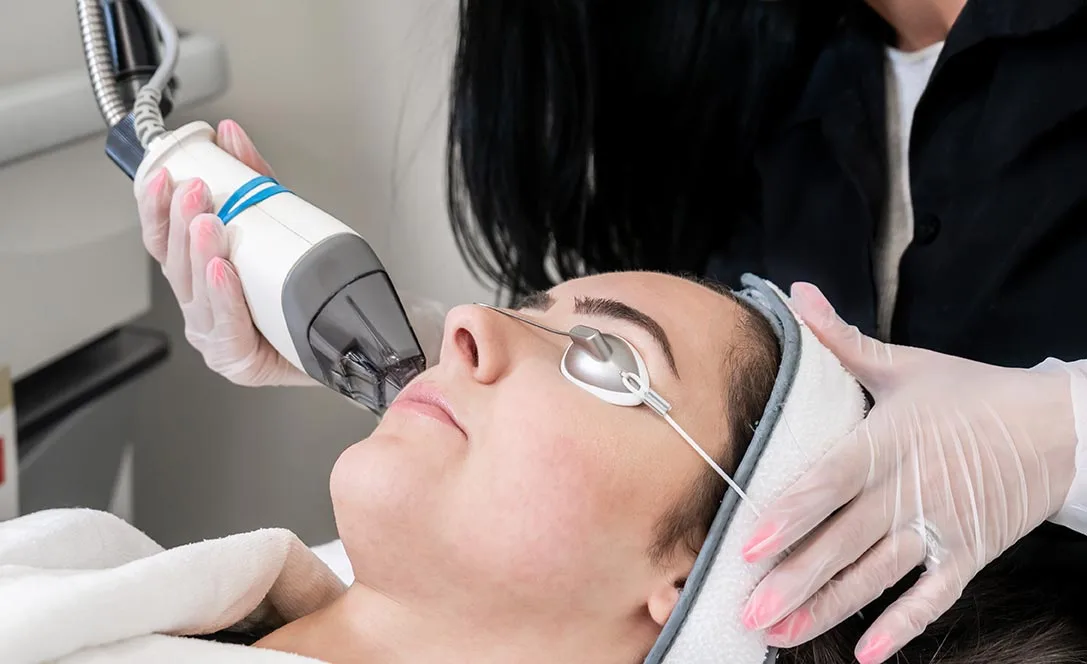If you have acne and you have tried all the remedies but the acne does not go away. To avoid worsening your skin, you need to get proper acne treatments from certified dermatologists including oral, topical, and treatment procedures.

A well-certified dermatologist is a professional who is an expert in skin and hair disorders. Acne is a common skin condition all around the world that has a lot of causes. Therefore getting any treatment on your own may be a mistake. You are not a professional who does not know the medical condition of the skin and the proper treatment. There are a lot of oral and topical medications as well as cosmetic procedures that you can opt for according to the severity of your acne. The medications range from oral antibiotics, oral contraceptives, Isotretinoin, retinoids, salicylic acid, benzoyl peroxide, laser treatments, micro-needling and more.
Types of Acne Treatment
Below are all the types of acne treatments that can help you change your skin appearance and reduce acne.
- Oral Medications
- Topical Medications
- Treatment Procedures
Oral Medications for Acne

Dermatologists prescribe oral medications for acne depending on the severity. If your acne does not go away by using home remedies, preventative measures, skincare, or topical treatments, you need to go on oral medications. Oral treatments are used to treat acne from within as they spread throughout the body for systematic healing. They kill bacteria or balance hormones that cause breakouts.
Oral medications are only available on a doctor’s prescription as the dosage is prescribed according to the acne severity, body condition, and healing period. They may take three to six months of treatment period.
Some of the widely acclaimed types of oral medications are:
- Antibiotics
- Birth Control Pills
- Oral Isotretinoin
Antibiotics
Antibiotics are oral medicines that help in treating bacteria and infections that cause acne. When pores clog due to dead skin cells and sebum, bacteria form that can be treated with antibiotics that combat those bacteria and heal acne. With consistent use, the pores get rid of bacterial infections, inflammation reduces and blemishes also reduce.
Antibiotic treatments take around 4 weeks to show results and should be continued for 4 months. These medicines work more effectively with topical medications.
Birth Control Pills
Birth Control Pills or Oral Contraceptives are used for hormonal acne treatment that can occur in adulthood. Hormonal Acne occurs due to the rise of androgen in the body that produces excessive oil in the pores and causes breakouts. They usually occur during menstruation cycle or menopause.
If you experience acne around your jawline or chin, go to your dermatologist for treatment of hormonal acne. Oral contraceptives contain estrogen that balances hormones and reduces sebum production. By taking birth control pills for acne treatment you can achieve visible changes in skin within three to four months.
Isotretinoin
For severe or moderately severe acne conditions, when nothing works, isotretinoin is like a last resort in oral medications. It is highly effective but should be used with precautions and continuous checkups with the dermatologist. Isotretinoin is a powerful medicine that dries up the oil glands in pores and kills bacteria. With regular use, it may reduce acne and scars.
It is dermatologically recommended to treat acne but may cause some side effects. Isotretinoin increases sensitivity to the sun, dryness around the mouth and nose, itchy or dry eyes, and super dry and flaky skin. Moreover, it is strictly disapproved for pregnant women as it may cause birth defects.
Topical Treatments

The topical acne treatments are effective for treating mild or moderate acne. But, if used with oral medications, topical medicines can be beneficial for moderately severe and severe types of acne. They are in gel, lotion, or ointment formulas that you can apply directly onto your skin. the purpose of these topical creams for acne is to kill bacteria or dry out the skin to get rid of excess oil.
There are many Over-the-Counter (OTC) topical treatments but it is better to use anything only under the prescriptions of a certified dermatologist. Some of the effective and common topical medicines for acne are:
- Retinoids
- Topical antibiotics
- Azelaic Acid
- Salicylic Acid
- Benzoyl Peroxide
Retinoids
Retinoids include ingredients like Tretinoin, retinol, adapalene, and tezarotene are beneficial for acne-prone skin. These are synthetic forms of Vitamin A that minimize the appearance of pores, unclog them, and improve the skin texture. It increases cell turnover to give a blemish-free clear skin. Retinoids are strong topical agents that are highly sensitive to sun exposure. Therefore it is better to use them with sunscreen.
Retinol for skin is available in gel, lotion, serum, and cream form. However, it is better to start usage with up to three times a week. So, that your skin becomes habitual of it and does not causes irritation. With regular use, you can increase the dose.
Topical Antibiotics
Mostly acne consists of bacterial inflammation for which topical antibiotics can work perfectly. Topical antibiotics include medicines like erythromycin and clindamycin which kill the bacteria from the skin and reduce hyperpigmentation. They help in the development of antibacterial resistance on your skin and reduce the production of bacteria. By using it regularly, you can see visible changes in the form of reduced acne, lesser inflammation, and unclogged pores.
Azelaic Acid
Azelaic Acid is a natural antibacterial acid found in grains, wheat, and barley that helps in fighting acne. It is a natural active ingredient with anti-inflammatory and antimicrobial properties. It helps clean your pores by killing bacteria, reduces inflammation, and boosts cell rejuvenation. Azelaic Acid is an effective treatment for acne-prone skin.
However, it comes with some minor side effects like drying, skin peeling, and irritation. This is available in various skin care products like cleansers, moisture, creams, lotions, and OTC ointments and gels.
Salicylic Acid
Salicylic acid is a skin exfoliating agent which significantly reduces acne formation and helps in getting clear skin. This acid takes weeks to show results by penetrating the skin and unclogging the pores by dissolving the dead skin cells. It is effective for whiteheads, blackheads, acne, cysts, breakouts, pimples, nodules, pustules, and papules. Along with treating existing acne, Salicylic Acid reduces sebum production which prevents new acne formation on your skin.
Benzoyl Peroxide
Benzoyl Peroxide is one of the common doctor’s prescribed topical treatment for acne. It works by drying your skin which makes the dead skin cells peel and oil reduction. Lotions, gels, creams, or ointments containing benzoyl peroxide can change skin appearance by reducing pimples and bumps on the skin. It treats mild to moderate acne.
Acne Treatment Procedures

When neither oral medications work nor topical treatments, you can always go for aesthetic treatment procedures that can do wonders. You can try the following medical procedures for acne by consulting your dermatologist.
- Chemical peel
- Laser or Light therapies
- Dermabrasion
- Corticosteroid injections
- Microneedling
- Drainage and Extraction treatments
Chemical Peel
A chemical peel is a procedure that should only be done by a certified dermatologist. After applying the peeling solution, the chemical damages the top layer of the skin and removes it. After the whole top layer of skin peels, healthy skin is revealed. This procedure is effective for acne and scarring because it removes the top layer. The following are the benefits of chemical peels:
- Unclogs pores
- Removes dead skin
- Shrinks pores
- Reduces sebum production
- Reveals smooth and healthy skin
- Allows better penetration of skincare products
- Evens skin tone
Laser and Light Therapies
Done by a skilled dermatologist, light and laser therapy can reduce your acne and make your skin clear and smooth. It can work effectively to reduce acne as well as acne scars. Therapies can take more than one or two sessions to show results. Moreover, the results may vary from person to person due to several factors such as the severity of acne. There are various types of light therapies and lasers for acne treatment such as:
- Blue and Red Light therapy
- Infrared light
- Photodynamic therapy
- Photopneumic therapy
Dermabrasion
Dermabrasion is an after-treatment of acne. After you have healed your acne you are left with stubborn acne scars that make your skin look uneven and bumpy. To cope with this issue, you can consult a dermatologist for dermabrasion. Dermabrasion is a process of removing the dead skin layer through surgical sanding and planing that smoothen acne scars. It is a tested treatment that helps in achieving smooth and scar-free skin.
If you have active acne and cyst, you need to avoid dermabrasion treatment and wait until you have healed your acne.
Corticosteroid Injections
Corticosteroid injections is a steroid injection that reduces inflammatory acne. It works as a synthetic hormone to relieve inflammation and dry out and shrink the large cystic acne. In this procedure, the injection is injected directly into the acne. It is done by a certified dermatologist who injects a certain amount of steroid into the acne, nodule, or cyst. You need to get various injections but within a break duration of up to six weeks.
Drainage and Extraction Treatment
This treatment works on large cystic acne that is filled with blood, and puss. It is done by a skilled dermatologist who drains and extracts all the dirt and puss from the acne. Upon extracting the acne, the bacteria die and the risk of infection is reduced. As a result, the acne starts to diminish and recover speedily.
FAQs
Which treatment is best for acne?
There are different types of treatments for acne such as:
- Oral medications
- Topical medications
- Treatment procedures
What helps acne go away fast?
There is no specific treatment that makes acne go away fast as healing requires time and varies from person to person. But, if you want a speedy recovery, you can consult your dermatologist for better treatment options according to your skin condition.
What are the top 3 best acne treatments?
The top 3 best treatments for acne are:
- Oral medications
- Topical medications
- Treatment procedures
How can I treat acne myself?
It is better to go to a dermatologist for acne issues but you also treat it yourself. You can do it by focusing on your diet, using home remedies, using a skincare routine, and staying away from acne triggers.
